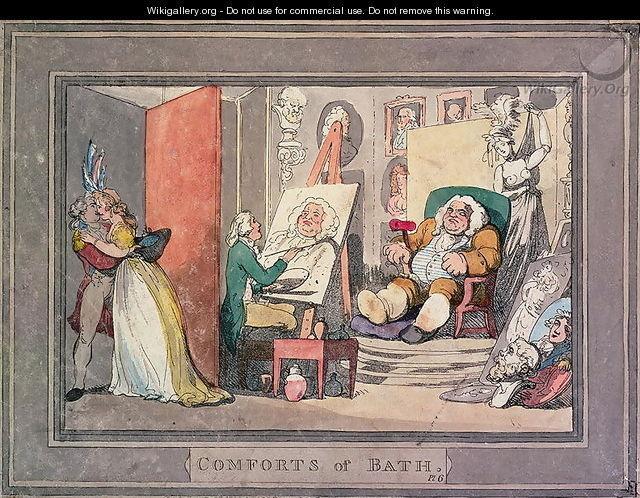Quote
"In general, the painting room must be like Eden before the fall, like Arcadia, the joyless, turbulent passions must not enter there."
Links to the Encyclopedia:
In general, the painting room must be like Eden before the fall, like Arcadia, the joyless, turbulent passions must not enter there.
Thus to raise the character: to divest an unbred person of his rusticity, and give him something at least of a gentleman. To make one of a moderate share of good sense appear to have a competency, a wise man to be more wise, and a brave man to be more so, a modest, discreet woman to have an air something angelical, and so of the rest; and then to add that joy, or peace of mind at least, and in such a manner as is suitable to the several characters, is absolutely necessary to a good face-painter: but it is the most difficult part of his art, and the last attained; perhaps it is never so much as thought of by some: all that they aim at is to make such a likeness of the face as shall be known immediately, and that it be young, fair, and handsome; and frequently those for whom the pictures are made expect no more; whether the characters of wisdom, or folly be impressed upon them it matters not. Accordingly we see portraits which are perfect burlesques upon the minds of the persons drawn; a wise man shall appear with the air of a fop; a man of spirit, and wit, like a smart, or a pretty fellow; a modest ingenious man like a beau, a virtuous lady as a mere coquet.
The late Duke of Buckingham when he heard a lady commended for her goodness, swore she was ugly; because beauty being a woman's top-character, he concluded that would have been insisted on if there was any ground for it. A painter should observe, and pronounce strongly the brightest part of the charater of him he draws. To give an air of youth, and gaiety to the portrait of one who is entitled to nothing higher is well enough; but to overlook a noble and sublime character, and substitute this in the place of it is detestable. The only supposing a man capable of being pleased with such a piece of falle flattery, is a lampoon upon his understanding.
Nor is the beauty of the face, and person, whether as to the age, features, shape, or colour to be unregarded, or (where it can be done) unimproved: indeed something of this will naturally fall in when the mind is expressed, which cannot be done to advantage without giving tome to the body.
But the face-painter is under a greater constraint in both relpects than he that paints history; the additional grace, and greatness he is to give, above what is to be found in the life, must not be thrown in too profusely, the resemblance must be preserved, and appear with vigour; the picture mull have both. Then it may be said, that the gentleman, or lady makes a fine, or a handsome picture: but the likeness not being regarded it is not they, but the painter that makes it; nor is there any great, difficulty in majing such fine picures.
Sources
Jonathan Richardson, The works of Jonathan Richardson. Containing I. The theory of painting. II. Essay ON The Art Of Criticism, (so far as it relates to Painting). III. The Science Of A Connoisseur. A new edition, corrected, with the additions of an essay on the knowledge of prints, and cautions to collectors. Ornamented with portraits by Worlidge, &c. of the most eminent Painters mentioned, Dedicated, by Permission, to Sir Joshua Reynolds. The Whole intended as a Supplement to the Anecdotes of Painters and Engravers. [1773]. London: Publisher: Sold by T. and J. Egerton, Whitehall; J. Debrett, Piccadilly; R. Faulder, and W. Miller, New Bond-Street; J. Cuthell, Middle-Row, Holborn; J. Barker, Russell-Court; and E. Jeffery, Pall-Mall, 1792) Full text in ECCO. Transcription by Alain Kerhervé.
